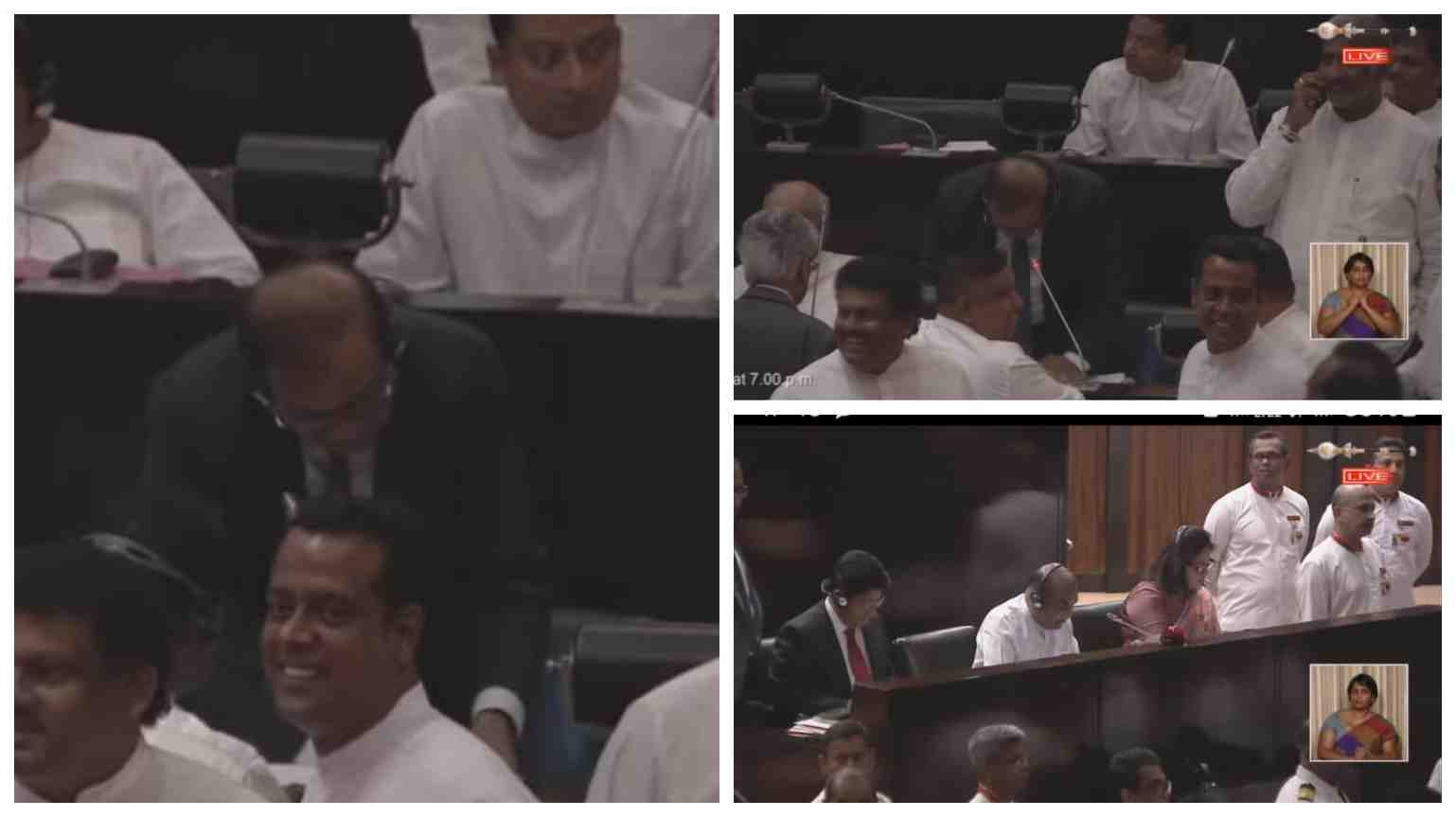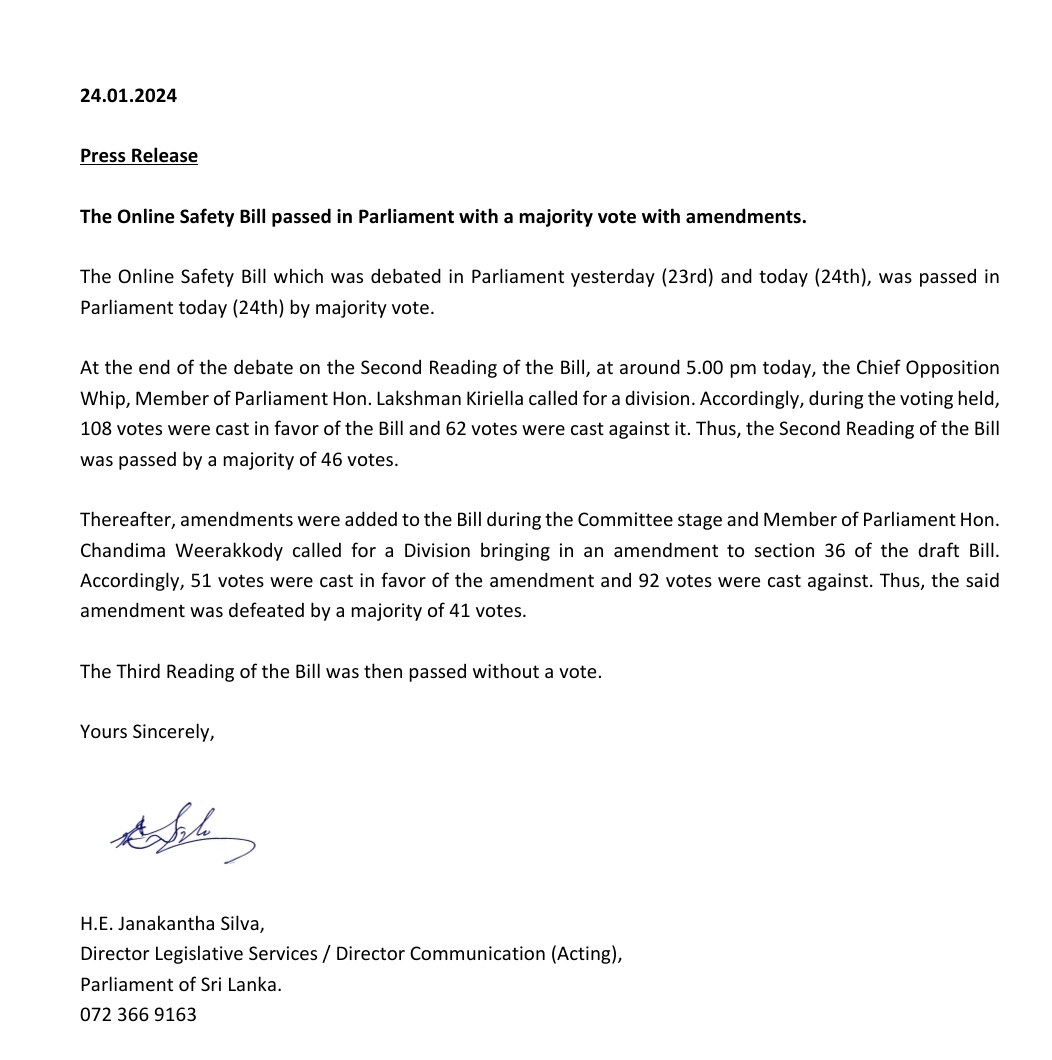
The Online Safety Bill was passed in the Parliament of Sri Lanka with a majority MPs supporting the bill, despite the Opposition claiming that the amendments proposed were not consistent with the Supreme Court’s determination.
When the bill was to be announced as passed, Opposition MP M.A. Sumanthiran highlighted that the government’s amendments were inconsistent with the Supreme Court’s determination.
Despite the Opposition’s concerns, the government announced it would proceed with the proposed Bill as the Attorney General had approved the amendments.
A tense situation then arose in Parliament, where Opposition MPs protested the government’s move, but the government disregarded the protest and announced the revised amendments and that the Bill had been passed in parliament.
Earlier today in Parliament, the Opposition accused the government of failing to follow the proper procedure concerning the Bill.
They further accused the government of not taking into consideration the concerns raised by the Asia Internet Coalition, consisting of international tech giants, which has pointed out that the law is unworkable.
The Online Safety Bill was published in the Sri Lankan Government Gazette in September 2023.
The Supreme Court of Sri Lanka thereafter, determined that the several Online Safety Bill provisions are not consistent with the Constitution.
In October, the government agreed to revise the Bill in accordance with the Supreme Court’s determinations announced on November 07, 2023.
Key objectives of the bill include establishing the Online Safety Commission, making provisions to prohibit online communication of certain statements of fact in Sri Lanka, preventing the use of online accounts and inauthentic online accounts for prohibited purposes, making provisions to identify and declare online locations used for prohibited purposes in Sri Lanka, and to suppress the financing and other support of communication of false statements of fact.
Upon it being gazetted, at least 45 petitions were filed at the Supreme Court challenging the Bill, with many raising concerns that it violates the fundamental rights of the public. (NewsWire)

